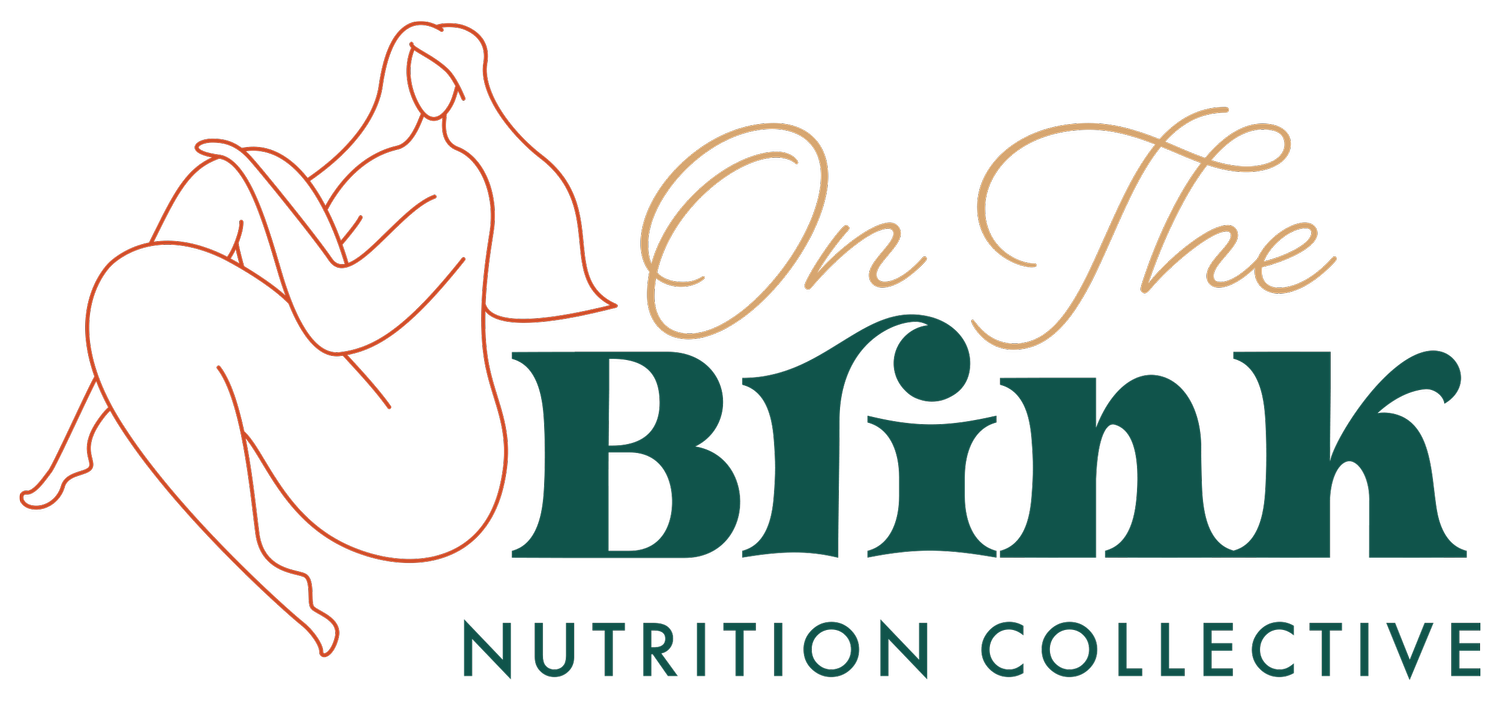When Knowing Isn't Enough
Does the thought of eating or the act of eating make you feel like you are stepping into a wilderness? Do you ever find yourself eating in a way that does not line up with your values or intentions?
You are not alone.
In my time doing this work, I’ve heard an abundance of stories about why the act of eating is challenging. Below are some real-life examples. I share this, not to sensationalize the stories of real-life people, but to shed light on the fact that it’s not a simple thing to shift an eating habit or make peace with food.
“At the age of 7, I was put on a diet because my parents thought I was too fat. They sent a diet milkshake to school with me for lunch. I was teased by my peers. It was the start of a lifetime of diets. I’ve tried to be “good” with my eating habits, but I don’t know what is good for me anymore. I don’t even know what kind of food I like.”
”When I was a child, my parents went from one diet to the next. Their eating habits were chaotic and restrictive. If I didn’t want to eat the food they made, I had to fend for myself. I was never shown how to prepare even a simple meal from scratch. I survived on frozen meals. I wanted better tasting food, but I didn’t have the skills or resources to access those meals. I don’t even feel like I deserve homemade food at this point in my life.”
”I have kidney failure and some other chronic illnesses. To manage my disease states, it was recommended to me to follow a restrictive diet. I can’t find enough of the foods I’m “allowed” to eat that I enjoy eating. My medication schedule disrupts my eating schedule.”
”I haven’t had a good night’s sleep since my daughter was born. She turns 2 this weekend. Most days, I can’t tell if I’m hungry or tired.”
”I’m grieving the loss of community, safety, finances, a job, school, a loved one. My sadness takes away my appetite. Or, I only feel better when I eat certain foods. Or, I only forget about my grief and loss (momentarily) when I’m starving or extremely full.”
”My children are both special needs and require intense supervision, I know I need time to myself but I don’t have a big support system. I eat when I can - often, not until the kids are in bed at night.”
On the outside, we may see any one of these people walking around in the world or sitting at a lunch table eating what our culture might call “unhealthy food”. We might hear someone ( a medical provider, a parent, a peer, a stranger) label them “unmotivated”, “non-compliant”, “lacking willpower”, “resistant to change”, and that I should “know better”.
Here are some “health-promoting” eating habits a Registered Dietitian is taught to recommend:
Go plant-based
Add a vegetable to every meal
Cut back on salt
Cut back on carbs
Cut back on fat
Increase the fiber in your diet
Calories in should be less than Calories out
I look at this list and I laugh. And then I cry. How careless to make such recommendations. As if “plant-based” food will restore a mother’s sleep. I know this from lived experience as I was a sleep deprived mother of four young children who believed going plant-based and “clean” would heal my weary soul. It just made my life extra hard and distracted me from the real work of surviving and healing. All that time chopping those d*mn vegetables during precious naptime and I could’ve been caring for myself in a more meaningful way.
The same thing goes for salt restriction. It’s the go-to recommendation for the management of high blood pressure. But, ask any person if they know what raises their blood pressure and they can tell you. Yes, sometimes it’s salty food (then, examining salt intake makes sense). However, if it’s something like stress, asking the person to add on a dietary restriction of sodium may only make the matter worse.
My biggest issue with these dietary recommendations is that it puts 100% of the responsibility of an individual’s success or failure on the individual.
We don’t live a life of complete isolation free from the impact of external forces. We may be isolated from other humans during this pandemic, but there are many variables at work in our day-to-day lives that can support or disrupt our best laid plans. We may want to be in complete control of our destiny, but we just are not.
So, back to the question: Why can't I eat the way I know I should? What is stopping me from making food choices that will feel good to my body in the long run?
After some contemplation along with trial and error in client sessions, I see that we have been too preoccupied with teaching people what to eat and not enough support guiding and modeling how to eat.
This month, I will be providing resources on “how to eat”. I’ll share the truth about willpower. And, wrap things up with a deep dive into the impact of our nervous system’s threat response (trauma response) on our ability to (1) make decisions about what to eat, (2) shop for food, (3) prepare food, and (4) eat food. Stay tuned!
Reach out for support. I’m not here to heal you, but I am here to support the healing. I’m not here to tell you what to eat, but I can show you how. I’m here to help you envision a real connection with your true self, your body, and food. I don’t know what your destination looks like, but we can dream together and find the first steps in a path leading you where you want to go.
